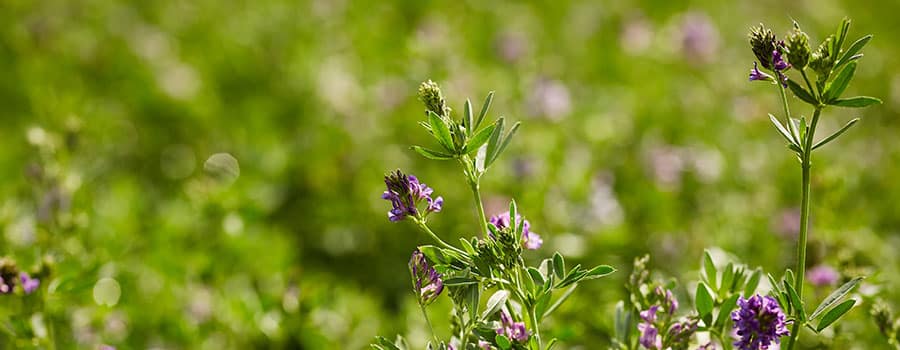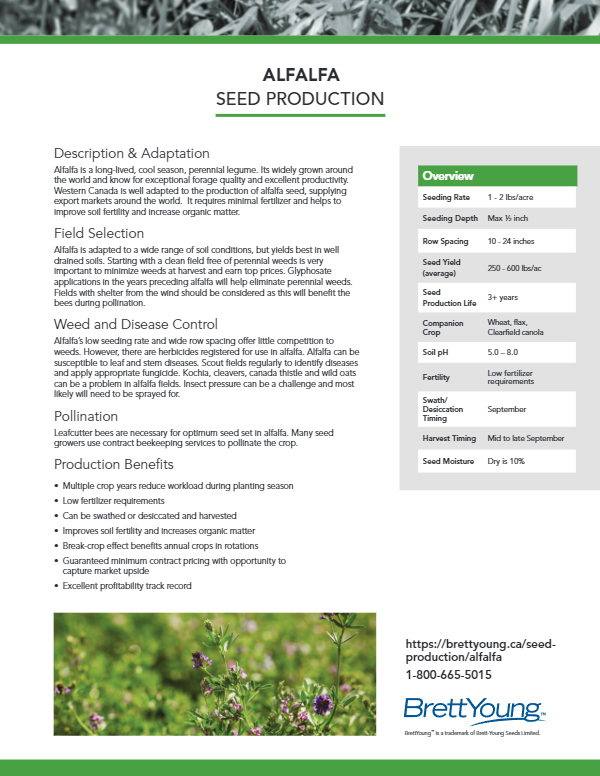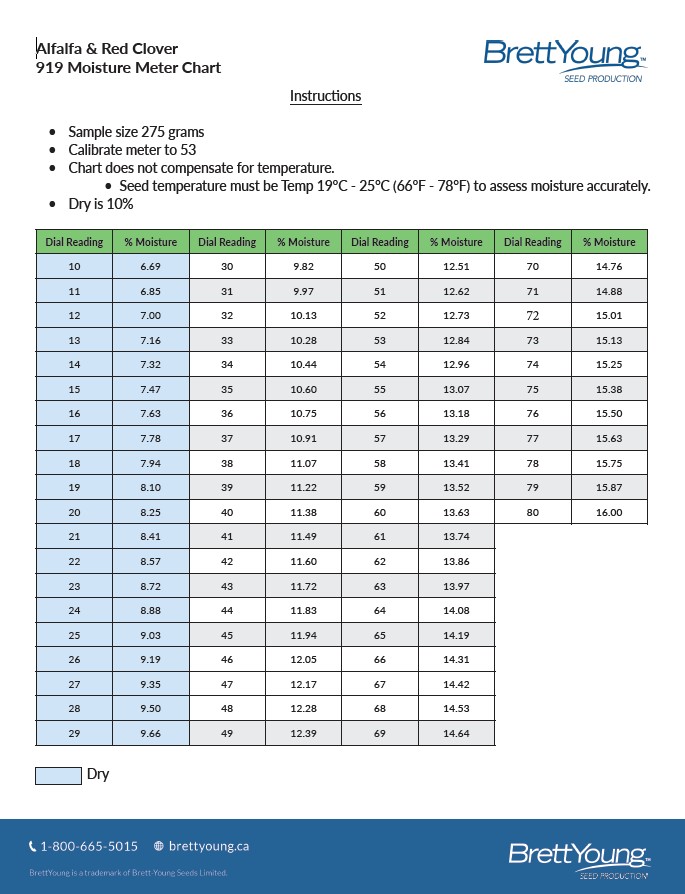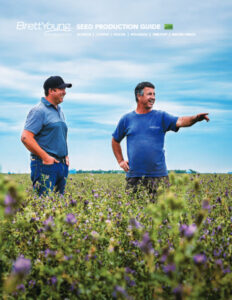- Home
- /
- Seed Production
- /
- Alfalfa

Alfalfa is a long-lived, cool season, perennial legume. It is the most commonly grown forage legume used for livestock production in Western Canada. Alfalfa seed production occurs throughout the prairies and is exported all over the world. It requires the use of leafcutter bees for adequate pollination.
Field Selection
Alfalfa is adapted to a wide range of soil conditions, but yields best in well drained soils. Starting with a clean field free of perennial weeds is very important. Glyphosate applications in the years preceding alfalfa will help eliminate perennial weeds. Shelter from the wind should be considered as this will benefit the bees during pollination.
Weed Control
Alfalfa’s low seeding rate and wide row spacing offer little competition to weeds. However, there are few chemicals registered for use in alfalfa. Our agronomists can help identify potential chemical control options.
Seeding
Treat the alfalfa seed with a quality inoculant just prior to seeding. Seed alfalfa between 0.5 lb/acre and 1 lb/acre in 24 inch to 36 inch rows. It can be seeded alone or with a cover crop. Flax or cereal crops are recommended as cover crops. Seed alfalfa no deeper than ½ inch into a firm, fine seedbed.
Disease Control
Alfalfa can be susceptible to leaf and stem diseases. Scout fields regularly to identify diseases and apply appropriate fungicide.
Pollination
Leafcutter bees are necessary for optimum seed set in alfalfa. Management of bees is very labour intensive and requires a substantial initial capital expenditure. Many seed growers use contract beekeeper services to pollinate the crop.
Harvesting
After pollination, alfalfa seed takes about five to six weeks to mature. Swathing can occur when most of the seed pods are black or brown in colour. Straight combining is a popular option because it helps reduce seed losses. In order to straight cut, the crop must be desiccated with an approved chemical or by a hard frost. Ideal seed moisture is 10.5%.
Seed Yield
Alfalfa seed yields in Western Canada can range significantly, from 100 lbs/acre to well over 700 lbs/acre. Geographic location and weather conditions during pollination have a large effect on seed yield.
| Features | |
|---|---|
| Crop Type | Legume |
| Revenue | High |
| Rotation | Long |
| Moisture Tolerance | Low |
| Harvesting | Late |
Alfalfa Tech Sheet & Moisture Chart
SEED PRODUCTION GUIDE
CONTACT A SEED PRODUCTION SPECIALIST

From scouting and selection of production fields, fertility programs, pest management and growth regulator recommendations to swathing, harvest timing and cover crop management, a dedicated Seed Production Specialist is with you every step of the way to help maximize returns.



